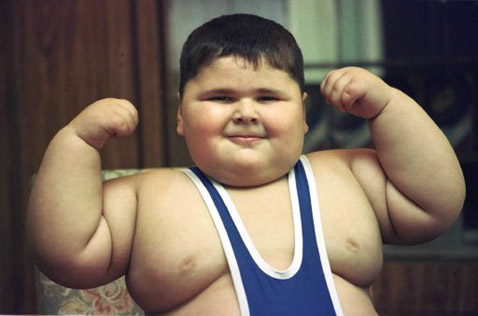Opinion Writer Georgia Hamer investigates whether advertising online is related to childhood obesity.
Advertising regulators have been accused of failing to protect children from ÔÇ£aggressive online marketingÔÇØÔÇÖ by food companies, using ÔÇ£manipulative tacticsÔÇØ to hook children while they play online, offering free gifts, games and downloads.
There is no doubt that the internet is an extremely powerful advertising tool. Food giants including Kellogg’s, Rowntree and Cadbury all have websites aimed at children and regularly use Facebook and Twitter to market products to young people but is online advertising really a cause for concern?
The ChildrenÔÇÖs Food Campaign stated that there is evidence to suggest online promotional games can subconsciously affect behaviour, warning that the internet has become an ÔÇ£important battleground for chidrenÔÇÖs dietsÔÇØ. As a result, the campaign has called on ministers to introduce statutory regulations in order to close loopholes which allow ads that are banned from childrenÔÇÖs television to be shown on manufacturersÔÇÖ websites.
Amongst the highlighted offenders is Sugar Puffs, who feature a game titled ÔÇ£Muching MonsterÔÇØ on their website, in which the player is required to guide the Honey Monster through a maze of Sugar Puffs; a seemingly harmless concept which the CFC claimed ÔÇ£encourages excessive consumption of the product and poor nutritional habitsÔÇØ. I kid you not.
The Advertising Standards Authority quite rightfully outright rejected the allegations against Sugar Puffs, however, on the bizarre grounds that the consumption of the cereal was presented in an ÔÇ£abstract wayÔÇØ in which ÔÇ£players were unlikely to associate the Honey MonsterÔÇÖs consumption with their ownÔÇØ.
Swizzles, on the other hand, failed to meet regulations with their Swizzle Town feature, including a game in which the central character could collect in excess of 100 cola bottles sweets. If the character was caught by the ÔÇÿangry parentsÔÇÖ the player would lose a life. The game was considered as unacceptable as it condoned eating a large number of sweets while hiding from oneÔÇÖs parents – heaven forbid! Looking at the countless online games depicting images of violence I canÔÇÖt help but feel there are perhaps far worse things children could take from the internet.
A number of websites do employ age regulations; however, it is difficult for these to be enforced.
KelloggÔÇÖs were quick to defend their online ad campaign for Krave , denying their use of digital marketing is aimed at kids, on the grounds that you need to by 17 to follow Krave on Facebook, play the Krave game or take part in votes. Whilst this is the case, it doesnÔÇÖt exactly a child genius to discover how easy it is to lie about your age online. WeÔÇÖve all done it; but should you really need to be 17 to be able to guide a masked piece of cereal through a maze?
With obesity, particularly among the younger generation, a rising phenomenon, it would certainly appear regulations aimed at tackling the issue are becoming increasingly absurd. Having found myself submerged in the latest craze in app gaming, ÔÇ£Candy CrushÔÇØ, I can honestly say I have not yet experienced any sudden urges to gorge on pick and mix sweets as a result. Granted, young children are perhaps more susceptible to the indirect methods of product promotion used online, particularly in games, however, I do feel the power of advertising is over emphasised. The fact of the matter is kids will continue to love sugary foods whether they are advertised or not.





Add Comment